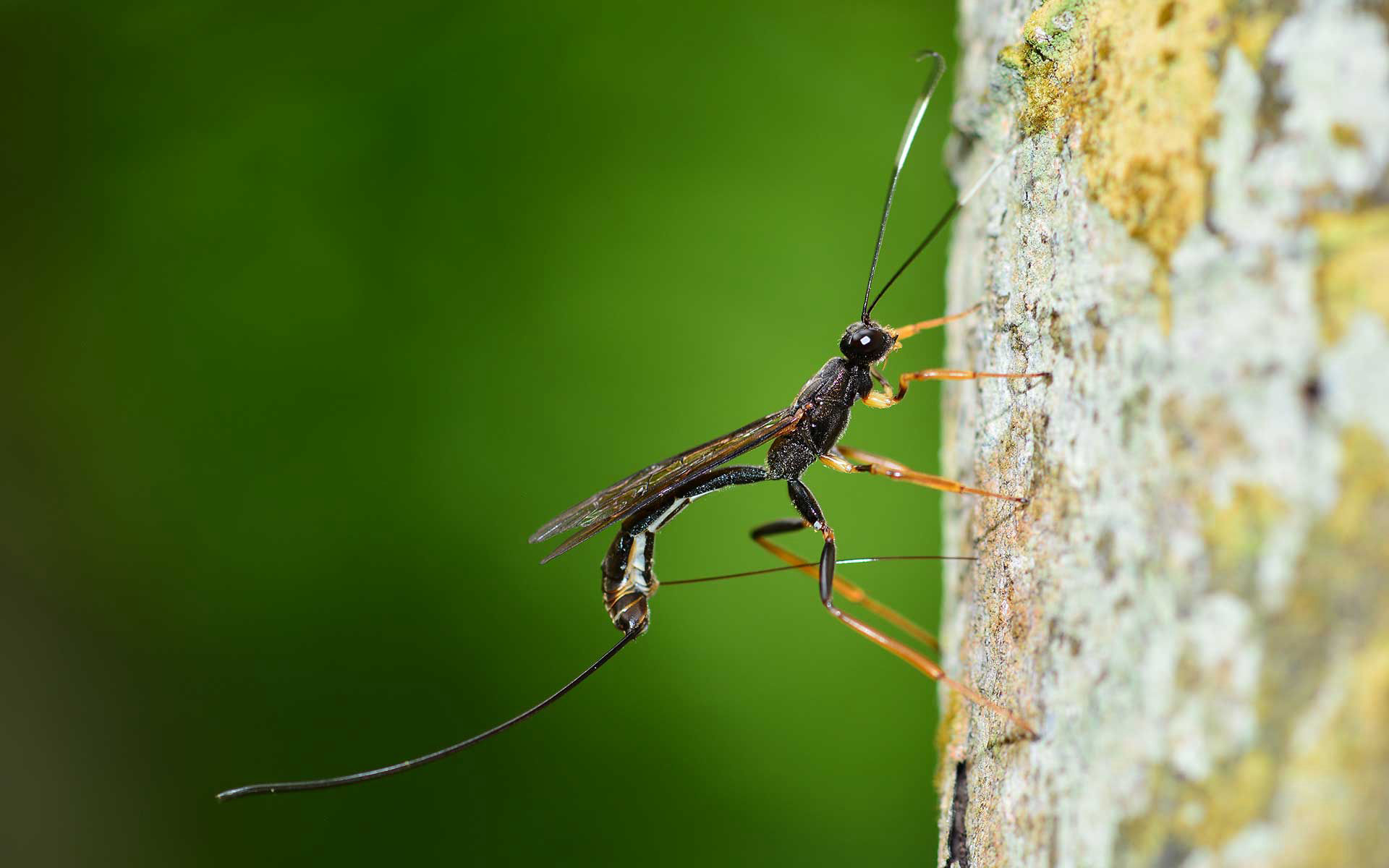
姬蜂很常見,但產卵的畫面倒是第一次遇見!首先利用敏感的觸角偵測樹幹裡生物,找出鑽食
木頭的甲蟲幼蟲,再用細長的產卵管鑽透堅固的木材,直通幼蟲體內產卵。
姬蜂的產卵管非常堅硬且有彈性,基部可控制角度和方向,讓牠可以輕鬆鑽透堅韌的木材纖維。幼蟲孵化後便開始行寄生生活,這項本能實在是嘆為觀止,生態世界果然奇妙無比!
Although ichneumon wasps are
common, this was the first time I saw one
laying eggs. This female used her sensitive
antennae to detect living organisms within
a tree trunk. After finding a wood-boring
beetle larva, she inserted her long, thin
ovipositor into solid wood, laying eggs in
the body of the larva. The ovipositor is
strong and flexible. The angle and direction
can be controlled from the base. In this
way, this wasp mother can drill through
wood substrate. Once the wasp eggs
hatch, the larvae feed on the host. The
natural world is truly a marvel to behold!
展示地點
第二特展室
展示時間
2019.07.13 - 2020.02.16
© 國立自然科學博物館版權所有